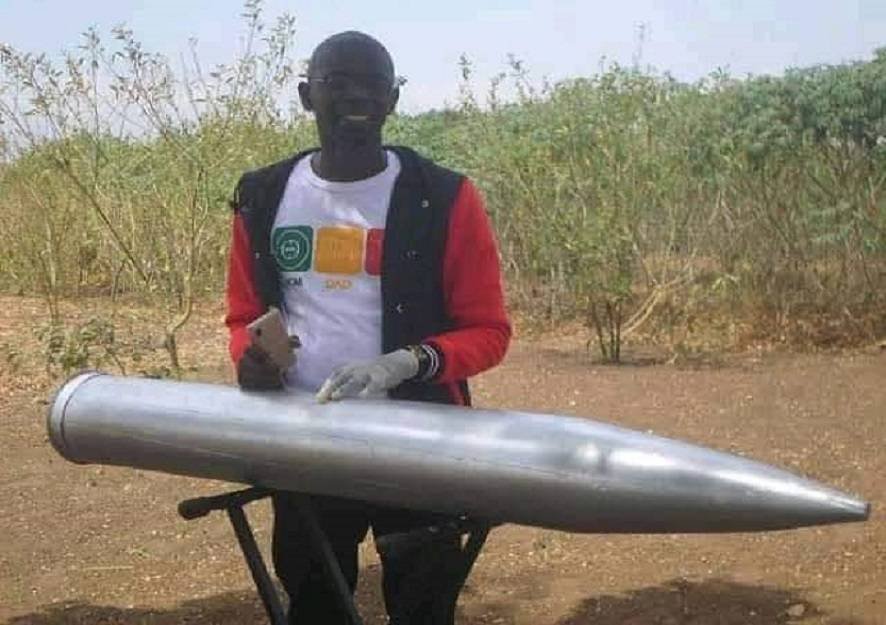In 2016, when he made headlines, he had already been arrested seven times, but he still didn’t relent on his charge to get an approval for his missile test from the Ugandan government.
“I have manufactured and upgraded a missile. I can also manufacture a rocket launcher,” Anatoli Kiiza, a resident of Kiryangobe village in Kitoba Sub county, told reporters that year.
Five years after, Kiiza is still on getting approval from the Ugandan government for his “missile” test. Earlier in February, he asked the government to authorize him to test his locally made weapons on Lake Albert, which is shared border between Uganda and the Democratic Republic of Congo (DRC).
“I only need four days when everyone is not on the lake and I test the weapons,” the 33-year-old said in an interview.
Kiiza said the first time he fabricated a machine similar to a missile was in June 2012, however, the police stormed his workshop in Hoima municipality and arrested him. He was released after undergoing interrogation and was not prosecuted in the courts of law.
Despite several recent arrests, he has remained undeterred. He said he researched on the internet on how missiles are made in countries like the U.S., China and North Korea.
However, in 2016, when he announced that he had manufactured a missile, he noted that he was in “advanced stages of researching on how to obtain a launch pad which could push the round-metallic device which has a cone-shaped head where he had already installed a cylinder,” the Daily Monitor reported.
Authorities say Kiiza first pursued a catering course in Mbarara in the western region of Uganda before working at an NGO in Uganda’s capital, Kampala, where he offered services for people living with HIV. In February 2012, he stopped working and returned to Hoima to trade in produce, officials say.
Kiiza’s enthusiasm for weapons manufacturing started right from his childhood, he told the police. “While still a child, I assembled a homemade bomb and went to test it at a river. I exploded and injured my right leg. Villagers got concerned and reported me to the LCI. My mother cautioned me against making such dangerous materials,” he said.
State Minister for Internal Affairs Obiba Ogania said although the government supports incredible innovations, there are protocols that need to be followed depending on the kind of invention. “First of all, we encourage him,” Ogania told UBC Television Uganda. “And I’m sure if the military has stopped him for the time being, it’s temporary. It’s just for the purpose of fulfilling those protocols. And sooner or later, if it is true, you will see the product being appropriately tested.”
The minister said that even if Kiiza is allowed to test his “missile” on Lake Albert, the DRC must be involved since Uganda shares the lake with that country.
Since the end of the Cold War in 1991, the global trade of heavy weapons system has reached its peak, according to the Stockholm International Peace Research Institute. Its 2018 report said the world’s ten biggest arms exporting countries, including the U.S., France, and Russia, made armament transfers worth over $25 billion. Meanwhile, weapon sales to Africa have decreased. According to the Stockholm report, African nations have imported fewer arms over the last decade, with imports decreasing by 6.5 percent. It said that even though many states in sub-Saharan Africa are affected by armed conflict and some receive foreign military aid, the volume of major arms imported by those states is relatively small.
Over the years, African countries that have been producing their own weapons have been looking at ways to further enhance their weapons manufacturing capacity to produce more sophisticated military weapons and equipment.
Kiiza argues that the Ugandan government can save money it spends on purchasing weapons if innovators like him are given the needed support. “I request government give me security and gazette an area for me where I can stay for some days as I manufacture weapons from local items,” he said.

